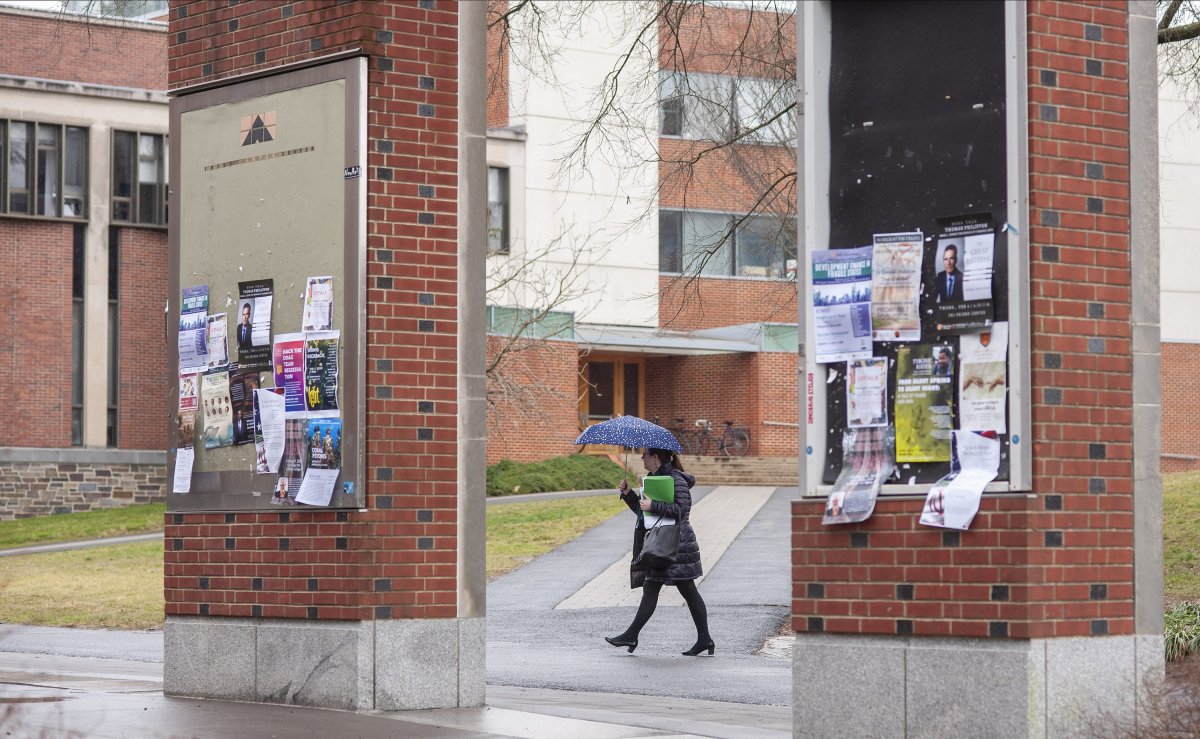Imagine walking into your first day of class and finding out that your beliefs have been officially condemned by the academic department offering the course. Pick the hot-button topic: abortion, affirmative action, marriage and sexual morality, transgender identity, Israel—university authorities have publicly decreed that your particular viewpoint is incompatible with the department's values. As a student, your dissenting viewpoint immediately brands you as an outsider. While the department may not have explicitly stated that you are unwelcome in its sponsored courses and majors, the message is clear: we are an ideological sect, and your unorthodoxy is anathema to us.
Sound less than ideal? It should. But such breaches of institutional neutrality are playing out at colleges and universities across the country, including at nonsectarian universities that advertise themselves as forums for the free and fair exchange of ideas—not as vehicles for evangelization and the promotion of doctrines and dogmas. In the aftermath of the U.S. Supreme Court's decision to overturn Roe v. Wade last summer, scores of academic institutions—as well as countless departments and offices within those institutions—released official statements repudiating the Court's ruling in hyperpartisan terms. Many universities, offices, and departments have adopted similarly ideological stances on other contentious subjects.
In response, supporters of academic freedom have renewed their calls for nonsectarian universities to formally enshrine institutional neutrality in their policies and rules. My university—Princeton, where I am a rising senior—is on the front lines of this fight. In the coming months, Princeton's faculty will vote on whether to adopt a proposal curtailing the ability of departments, centers, and related programs to put out official statements or take positions on issues in the name of the university. For the sake of everyone at Princeton, very much including the students, comprehensive institutional neutrality must be enshrined as university policy.
For universities bound by a particular creed or confession, adopting official positions on certain topics may well be justified—even required. Who could take issue with a Baptist, Catholic, or Jewish university's public profession of fidelity to the teachings of its faith? Confessional universities are rightly not tight-lipped about their affiliations, and matriculating students ought to be well aware of the doctrines or beliefs that inform their university's mission.

But students at nonsectarian universities like Princeton make the decision to enroll with an entirely different set of expectations. Because these educational institutions are not organs of any church, ideology, or political party, they differ from their confessional counterparts in that they do not restrict themselves to the confines of any particular set of doctrines or beliefs. Instead, they are supposed to provide a truly impartial setting for an ideologically diverse array of scholars to engage with one another on topics of scholarly interest, including subjects on which there is deep-seated philosophical, moral, and political disagreement.
When they stay true to their mission and resist pressure to weigh in on the hotly contested issues of the day, nonsectarian universities are rightly not concerned with ideologies that scholarship produced within their walls might support or favor. They are rightly not concerned with furthering partisan causes, defending orthodoxy, or promoting any particular worldview. They are purely concerned with providing a secure forum for dispassionate scholarship, unimpeded discourse, and open inquiry—with the pursuit of truth as their ultimate end. That is all.
The student experience suffers profoundly when ostensibly unaffiliated universities violate their commitments to impartiality. This consequence is easily observable at Princeton, which has seen its fair share of such violations over my time as a student. Since 2020, Princeton's academic departments and offices have issued official statements denouncing a professor for his unpopular political views, condemning a jury's acquittal of Kyle Rittenhouse, and deploring the Supreme Court's ruling in Dobbs v. Jackson Women's Health Organization. Each of these scandalous derelictions of the university's commitment to remain non-sectarian sent an unmistakable message to students holding dissenting views: your perspectives are repugnant. These acts of malfeasance, in turn, stoke the flames of self-censorship and ideological groupthink—phenomena that have become endemic among Princeton students.
For the sake of Princeton's continued fidelity to its "fundamental commitment" to the notion that "debate or deliberation may not be suppressed because the ideas put forth are thought by some or even by most members of the University community to be offensive, unwise, immoral, or wrong-headed," the university must set a noble standard for other nonsectarian institutions to follow and formally commit itself to institutional neutrality. We students deserve nothing less.
Matthew Wilson is a rising senior at Princeton University studying politics.
The views expressed in this article are the writer's own.
Uncommon Knowledge
Newsweek is committed to challenging conventional wisdom and finding connections in the search for common ground.
Newsweek is committed to challenging conventional wisdom and finding connections in the search for common ground.
About the writer
To read how Newsweek uses AI as a newsroom tool, Click here.






